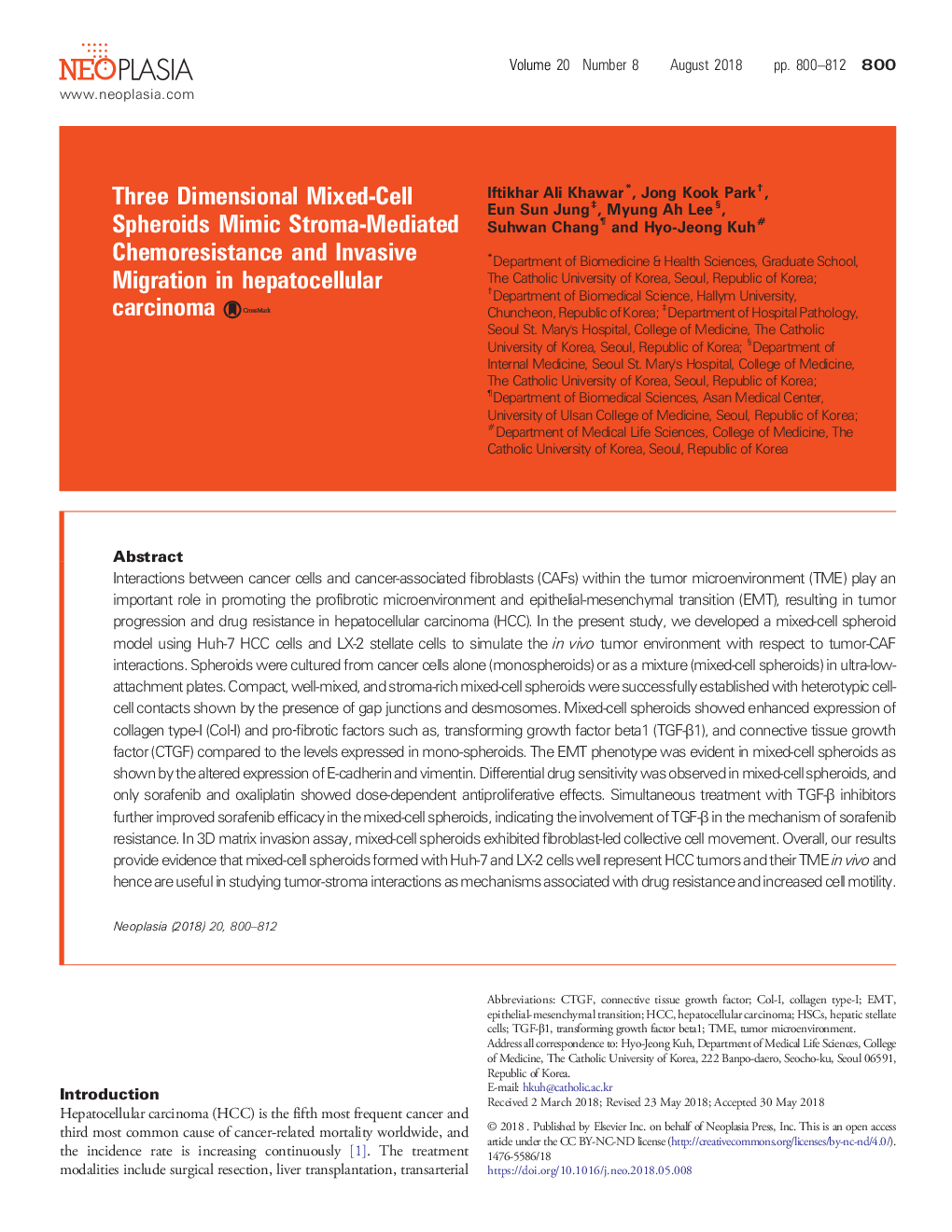| Article ID | Journal | Published Year | Pages | File Type |
|---|---|---|---|---|
| 8456774 | Neoplasia | 2018 | 13 Pages |
Abstract
Interactions between cancer cells and cancer-associated fibroblasts (CAFs) within the tumor microenvironment (TME) play an important role in promoting the profibrotic microenvironment and epithelial-mesenchymal transition (EMT), resulting in tumor progression and drug resistance in hepatocellular carcinoma (HCC). In the present study, we developed a mixed-cell spheroid model using Huh-7 HCC cells and LX-2 stellate cells to simulate the in vivo tumor environment with respect to tumor-CAF interactions. Spheroids were cultured from cancer cells alone (monospheroids) or as a mixture (mixed-cell spheroids) in ultra-low-attachment plates. Compact, well-mixed, and stroma-rich mixed-cell spheroids were successfully established with heterotypic cell-cell contacts shown by the presence of gap junctions and desmosomes. Mixed-cell spheroids showed enhanced expression of collagen type-I (ColâI) and proâfibrotic factors such as, transforming growth factor beta1 (TGF-β1), and connective tissue growth factor (CTGF) compared to the levels expressed in mono-spheroids. The EMT phenotype was evident in mixed-cell spheroids as shown by the altered expression of E-cadherin and vimentin. Differential drug sensitivity was observed in mixed-cell spheroids, and only sorafenib and oxaliplatin showed dose-dependent antiproliferative effects. Simultaneous treatment with TGF-β inhibitors further improved sorafenib efficacy in the mixed-cell spheroids, indicating the involvement of TGF-β in the mechanism of sorafenib resistance. In 3D matrix invasion assay, mixed-cell spheroids exhibited fibroblast-led collective cell movement. Overall, our results provide evidence that mixed-cell spheroids formed with Huh-7 and LX-2 cells well represent HCC tumors and their TME in vivo and hence are useful in studying tumor-stroma interactions as mechanisms associated with drug resistance and increased cell motility.
Keywords
Related Topics
Life Sciences
Biochemistry, Genetics and Molecular Biology
Cancer Research
Authors
Iftikhar Ali Khawar, Jong Kook Park, Eun Sun Jung, Myung Ah Lee, Suhwan Chang, Hyo-Jeong Kuh,
